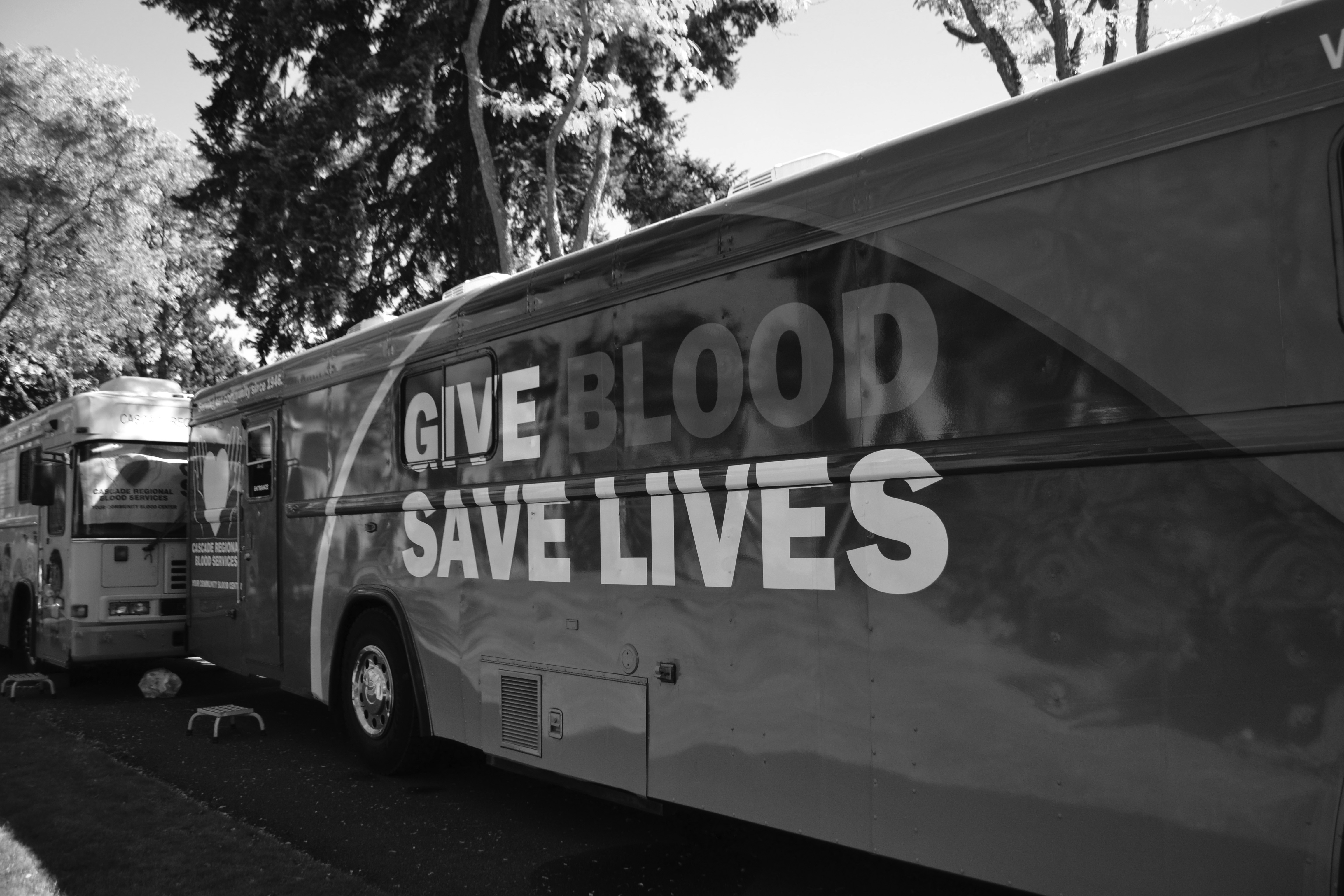Paris Franklin, Copy Editor
A blood drive was held on campus on September 21
and 22 in Red Square, but certain Lutes were not able to participate.
“I don’t know a whole lot about the ban, I just know that I would not be permitted to donate even if I wanted to,” said Gavin Jackson, a second year nursing student at Pacific Lutheran University.
Like all gay men, or men who have participated in male-to-male sex (known as MSM) even once since 1977, Jackson will never be allowed to give blood in the United States. A policy is in place today by the Food and Drug Administration stating that any male who has had sex with another male since 1977 is unable to donate blood. Women who have had sex with men who have had sexual contact with another male may also be banned from donating blood.
Many countries were quick to follow the United States in the original hysteria once learned that there is an increased risk of recipient AIDS contraction if donor blood is infected.
According to Jackson, gay people are the only people to be banned from donating. A few groups who are not banned are those who have participated in intravenous drug consumption, those who have paid for sex—so long as it was at least one year prior to donation—, and those who have recently received a tattoo or piercing. While a question about body modification is on the FDA’s donor information sheet, it is each state’s discretion as to whether or not a donor is able to give within twelve, six, or zero months of the use of needles to administer ink or jewelry into the skin.
The same questionnaire also asks whether or not males with a desire to donate have participated in male/male sex, but it does not ask of the HIV/AIDS prevention methods that could have been used during all sexual relations.
The FDA screens blood regardless of its origin, therefore a ban is suggesting a substandard screening process. That should be no reason to prohibit gay people from donating if they claim to screen for negative agents in all blood.
“My blood is just the same as everyone else’s. If I have healthy blood, I feel like other people should be able to have it if they are in need,” Jackson said.
He has never been given the ability to donate, but there are many instances of clean men who donated blood frequently before coming out as gay.
Even without a significant risk of contracting HIV from a blood transfusion—the risk is about one per two million units of blood transfused according to the FDA—the policy has only been amended once since 1983 when panic originally ensued, and there are no plans to change it anytime soon.
“I think that HIV prevention has come so far that the ban is a little bit of a dated decision… It is time to make a change,” said Sophia VanDyke, another second year nursing student at PLU.
VanDyke believes that the FDA ban is representative of 80’s ideals, rather than fact based on current medical technology.
All donated blood is tested for negative agents soon after collection, and modern testing methods allow for results about diseases such as HIV/AIDS to come up within seven to 10 days of collection. Because of possible inaccuracies in the test, other countries who originally banned gay men have now instead opted for a deferral period, usually ranging from one to five years, rather than an outright lifetime ban for gay men.
“I don’t think that there is any harm in getting more healthy blood to give out,” said Jackson.
Many Red Cross blood shortages have occurred since the ban was put in place, and there have still been noted cases of AIDS contractions in patients receiving donated blood despite the 0 percent chance that any gay men would have donated.
So what is this policy really helping with, and should it be stopped?
“If enough people complain about it, or petition against it, eventually the FDA would do something about it. I feel like a lot of people don’t know that it is a rule, and if they did, I feel like they would get behind it,” suggested Jackson.

















